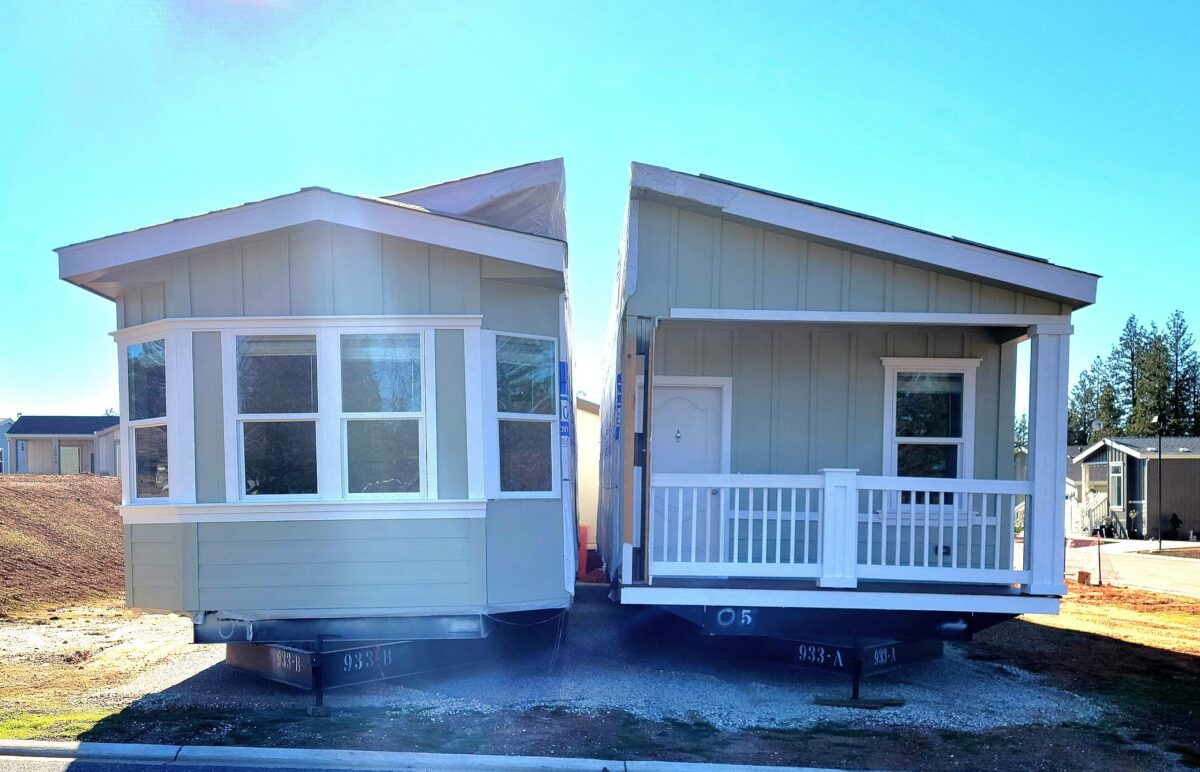
Senate Bill 988, which gives residents of Connecticut mobile home communities the right to make a bid for the property their homes are on if the owner wishes to sell, went into effect on Oct. 1.
Also known as Public Act Number 23-125 and “An Act Concerning the Purchase of a Mobile Manufactured Home Park by Its Residents,” the bill has important implications for a key source of affordable housing across the country. The legislation is itself a compromise which was reached through intense discussion between parties representing both the current owners of the communities and the residents.
“This was one of the most intensely negotiated bills of the legislature this year,” said State Rep. Geoff Luxenberg, a Democrat from Manchester and the chairman of the Housing Committee for the General Assembly.
“I think one of the sticking points is that the advocates that wanted to unlock this opportunity for residents had very different economic interests,” Luxenberg continued. “The residents that want the ability to buy the parks have very different policy goals than the park owners, so it required a lot of really detailed line-by-line meetings, negotiating the language, and looking at all the different states that already have this and how they do it differently, before compromising to get to a place where all parties could agree. Everybody got a little bit of what they wanted and a little bit of what they didn’t want. The end result is a policy that is going to benefit this state because everybody was willing to compromise.”
Mark Asnes, the president of the Connecticut Manufactured Housing Association and the owner of several communities, agreed with Luxenberg’s assessment.
“He’s 100% correct,” Asnes said, noting that community owners had to overcome core beliefs to reach that compromise. “If you think about it, we’re all business owners, and nobody likes to be told who you should sell your business to. If it’s a family business, a lot of guys have been doing this for 20 or 30 years, working with their dads or grandfathers in a legacy owned community and all of the sudden the state passes a law that says ‘when you want to put your family’s business up for sale, we’re going to tell you who to sell it to first, that’s kind of the first hurdle.”
Dave Delohery, president of the Connecticut Manufactured Homeowners Alliance, noted that he was a rookie to the political process of crafting legislation.
“I understood more than ever why they say there’s two things you don’t want to watch being made – one is sausage and the other is laws,” he said, recalling that negotiations stretched to the second to last day of the legislative session. “It was nail-biting, but we did work together with the park owner’s group. We had negotiation sessions over the space of several months in the spring and we got enough bipartisan support to get it through.”
The legislation requires the owners of mobile home communities to provide 60 days’ notice of an intent to sell the park, and an association of residents will have 180 days to purchase the park from the current owner and may request assistance from the Department of Housing and the Connecticut Housing Finance Authority to make the sale.
Asnes said that these long wait times can expose owners to significant market fluctuations and rate adjustments, potentially leading to large losses compared to a faster close. However, he acknowledged that important concessions such as exemptions for the sale of multiple parks at once or transferring the property to family members were secured in the process.
Delohery said that many residents were motivated to support the legislation by the fear of larger out of state companies purchasing the communities and raising rents at a higher rate. In particular, he said residents were concerned about sales to several companies currently being sued in federal court for engaging in price fixing and raising rents by as much as 9.1% per year during the Covid pandemic, a significant amount for many residents on fixed incomes.
While most manufactured homes are “mobile” and owned by their inhabitants, Delohery asserted that those who cannot afford an increased lot fee would likely struggle to cover the $15,000 to $20,000 costs of relocating the structure. Even if the community winds up owing a mortgage after the sale, the ability to set rents and priorities can be vital.
Luxenberg noted that the state was also making a compromise by waiving the conveyance tax when community owners sell to current residents. The municipal share of the conveyance tax will also be paid by the state.
Despite their differences of opinion, Delohery and Asnes both said they want to see the self-owned communities succeed, and expressed hope that more might be built in response to the state’s ongoing housing crisis.
“There’s a stigma attached to mobile home parks.” Delohery said. “But we’re starting to see some recognition at the local level that at least the existing stock of mobile home parks should be protected. Mobile homes are one of the only remaining reservoirs of affordable housing across the country.”
“We need to get more of these built,” Asnes said, “It’s high-density housing, just not in an apartment building. And it lets people actually afford a home, a $125,000 single-wide with two bedrooms and bath can be a home for part of somebody’s life or something they can leave to their kids. It’s an alternative that needs to be considered when you can’t find a stick-built house for under $100,000. We need the towns to stop this “not my in my backyard stuff.”



















